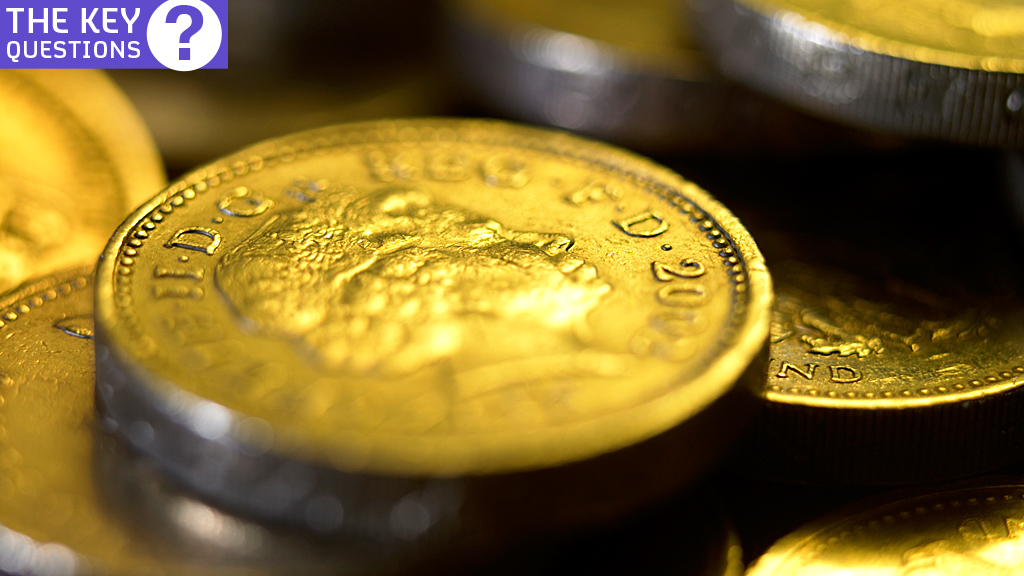Triple-dip recession in the UK – the key questions
Britain’s economic growth has taken an unexpected knock, raising fears of a triple-dip recession. But are these fears well grounded or is there hope on the horizon? Channel 4 News investigates.

What’s happened and why?
Britain’s economy took an unexpected turn for the worse at the end of 2012, with the country’s gross domestic product (GDP) down by 0.3 per cent in the fourth quarter.
Reporting the fall, the Office for National Statistics (ONS) said it was sharper than the 0.1 per cent drop that analysts had expected. The ONS blamed the fall on a slump in North Sea oil production, lower factory output and a hangover from London’s Olympics.
So where does that leave us?
Britain’s economy remains more than 3 per cent below its pre-recession peak in the first quarter of 2008. We have only managed to recover about half of the output lost during the financial crisis – a worse performance than most other major economies – raising fears that the country is heading for a triple-dip recession.
“All the talk of a triple dip recession just distracts from the fact that we have an absence of growth and have had for some time,” Simon Kirby, an economist at the National Institute of Economic and Social Research (NIESR), told Channel 4 News. “The most depressing fact is that effectively over the last couple of years the economy has been flat – the ONS says we’re at the same place we were in Q3 of 2010.”
What is a triple-dip recession?
A recession is defined by two consecutive quarters of falling GDP. Britain suffered a “double dip” recession when, after a brief period of growth, it slipped back into recession in the last three months of 2011.
The country only emerged from the slump in the third quarter of 2012, after a boost from the London Olympics helped pull up GDP by 0.9 per cent. If this latest slide is followed by another quarterly slump, Britain will dip into negative growth for the third time – suffering a triple-dip recession.
Will Britain fall into a triple-dip?
Right now, we are only one month into Q1 of 2013, so we have a few months to go in real terms before the quarter finishes and the official bodies can start drawing on the data to estimate how we did.
NIESR is “pencilling in” growth of around quarter of a percent, said Mr Kirby. “It’s going to be close – the general consensus is that Q1 will see weak growth,” he added.
In which case, Britain may just escape a triple-dip – but right now the margin of uncertainty is very real.
Has anyone else suffered a triple-dip?
“A triple dip recession is not that common,”, said Mr Kirby. In fact, the picture for some European countries is worse. Spain and Italy both suffered double dip recessions, but neither can expect growth anytime soon, Mr Kirby said, sending them further towards a depression than a triple-dip. Meanwhile Greece is already in a depression, having continual drops in GDP quarter-on-quarter.
What about a depression?
There is no widely accepted definition of a depression. However, according to the International Monetary Fund (IMF), most analysts consider a depression to be an extremely severe recession in which GDP declines more than 10 per cent. The Greeks are in a depression right now, and some say Spain is heading that way.
During America’s Great Depression of 1929-33, GDP fell some 30 per cent over four years. Following the collapse of the Soviet Union, its biggest trading partner, Finland, suffered a drop in GDP of 11 per cent between 1990-1993. Meanwhile, the “lost decade” of the 1990s in Japan is not deemed a depression because the biggest peak-to-trough slide in read GDP was just 3.4 per cent over two years to March 1999.
Emerging economies have fared worse. In Russia, GDP shrank by 45 per cent between 1990 and 1998, while Indonesia, Malaysia and Thailand were all hit with double-digit falls in GDP from 1997-1998.
What is the longer term outlook?
The Office for Budget Responsibility (OBR) expects growth for 2012 to ring in at -0.1 per cent, but has forecast a “gradual pick-up” this year, leading to an annual growth of 1.2 per cent.
The economy will not be deemed in recovery however until it starts pulling in upwards of 2 per cent growth per annum.
The OBR expects the economy to hit that 2 per cent in 2014, climb to 2.3 per cent in 2015, 2.7 per cent in 2016 and 2.8 per cent in 2017.
The OBR said: “Growth is not forecast to return to firmly above-trend rates until 2015 as credit conditions begin to normalise and financial markets return to a more stable position.”
It also warned that the situation in the euro area “remains a major risk to our forecast”.
While the OBR does not make comparative country forecasts, in 2012 the IMF forecast UK GDP to contract by 0.4 per cent compared to growth of 0.9 per cent in Germany and 2.2 per cent in the US. However, from 2013 and in each year to 2017, the IMF expects the UK to grow faster than Germany.
-
Latest news
-
Taylor Swift’s new break-up album breaks records3m

-
NHS trust fined £200K for failings that led to death of two mental health patients3m

-
Sunak vows to end UK ‘sick note culture’ with benefit reform3m

-
‘Loose talk about using nuclear weapons is irresponsible and unacceptable’, says head of UN’s nuclear watchdog3m

-
‘There wasn’t an Israeli attack on Iran,’ says former adviser to Iran’s nuclear negotiations team7m

-




